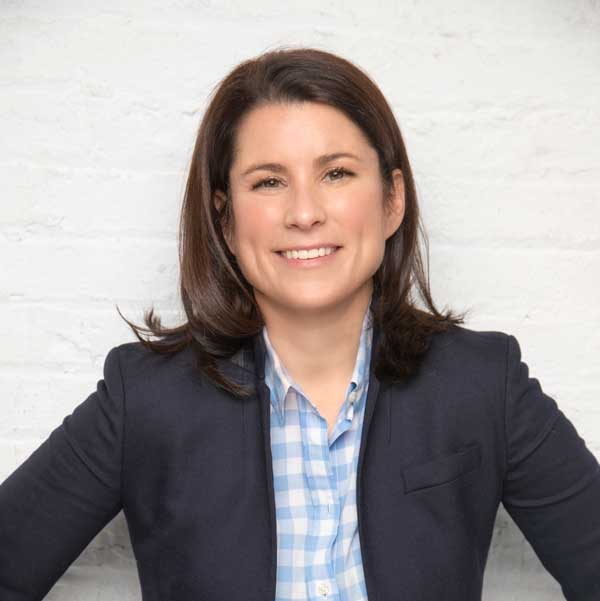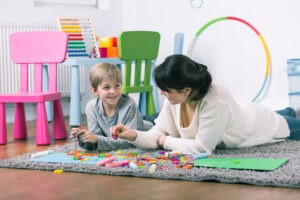Should I speak to my child in two languages? Can this cause any issues I should be concerned with? Will my bilingual child’s speech and language development be affected? If you’re a parent raising a bilingual child, it’s completely normal to have questions like these.
Bilingualism in the United States is incredibly common. About 22% of children in the U.S. speak a language other than English at home. The ability to speak more than one language can be very valuable in later social, academic, and professional aspects of life. Specific benefits of bilingualism include greater access to people and resources, more creativity and better complex problem solving abilities, and a higher ability to focus attention on relevant information.
However, there are several myths and misconceptions about raising a bilingual child. Let’s separate fact from fiction and answer some of the most common questions about raising a child who speaks more than one language.
What language should I speak to my child in?
Answer: The language you know best!
In order to provide the proper language model for your child, it is recommended that you speak to him or her in the language you are most proficient in. The same goes for other family members in the household or those that your child interacts with on a regular basis.
There are different ways and timing that your child can learn two languages. A child might learn two languages at the same time as they grow. For example, Spanish at home and English at daycare or preschool. This is known as simultaneous acquisition. When he or she learns a second language after the first one is well-established, this is called sequential acquisition. Both of these are considered “normal” and not harmful to a child’s speech and language development!
What can I expect as my child learns two languages?
Children learning more than one language can be expected to reach speech and language milestones close to the same time as monolingual children. Sometimes language milestones are met slightly later for bilingual children, though still within the same range. This includes saying their first word around 12 months, combining two words to form phrases (like “hi mommy”) at 24 months, and having a vocabulary close to 1,000 words by age 3.
One misconception is that raising a child to speak more than one language can cause him or her to have a learning disorder or result in stuttering. Current research does not support this, so no need to worry.
It’s important to note there are some differences in language learning. First, a bilingual child may not say as many words in English as a child who speaks English only. However, the combination of his or her vocabulary in both languages spoken typically equals or exceeds that of an English-only speaking peer. You might find that your bilingual child mixes grammar rules from both languages while learning to talk. Or, that he or she includes words from both languages within the same sentence (known as “Code Switching”). It’s all part of typical language development for bilingual children.
What if my bilingual child has a speech and language delay?
Let’s debunk one very common myth: If I am concerned my child has a speech and language delay, then I should only teach them one language.
Children can learn multiple languages well when they learn them at a young age, at the time typical language development occurs. Speaking to your child in a language you may not know as well won’t provide him or her with the best model of grammar or how to form sentences. That can even have a negative impact on your child’s language skills.
If you are concerned with your bilingual child’s speech and language development, a Speech-Language Pathologist (also known as a “Speech Therapist”) can conduct an evaluation to determine if he or she has a language disorder. An evaluation with a bilingual Speech-Pathologist is recommended. If one is not available, an interpreter will be used. The therapist will provide recommendations on how to promote speech and language skills in both languages your child is learning. If speech therapy is recommended, the therapist can give parents continued tools to use at home to support dual language learning. TherapyWorks provides Speech, Occupational, Feeding and Physical Therapy services in-home in Illinois, Ohio and Michigan and nationwide via teletherapy. Many of our therapists are bi-lingual and would be happy to answer your questions.








